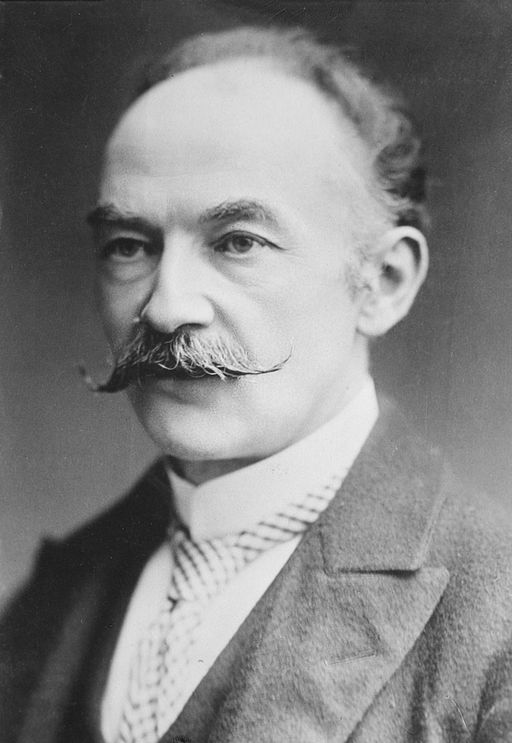In the Time of Thomas Hardy (1840-1928)
 |
| Bain News Service, publisher / Public domain |
Only a man harrowing clods
In a slow silent walk
With an old horse that stumbles and nods
Half asleep as they stalk.
Only thin smoke without flame
From the heaps of couch-grass;
Yet this will go onward the same
Though Dynasties pass.
Yonder a maid and her wight
Come whispering by:
War's annals will cloud into night
Ere their story die.
– In Time of 'The Breaking of Nations' by Thomas Hardy, 1915
The author, Thomas Hardy, always regarded himself primarily as a poet even though he gained fame, in his lifetime, for his novels and short stories. Indeed, it was the income that he earned from these endeavours that allowed him, eventually, to leave his job as an architect and devote himself full time to writing.
His first volume of poetry, Wessex Poems, was not published until 1898, representing the output of the previous thirty years. It followed not too long after the publication of his final novel, Jude the Obscure, which, like much of his work, received criticism for its portrayal of issues concerning class, religion, morality, marriage and social mores. Characters in Hardy's novels seem destined (doomed even) to live out their lives within the confines of a Victorian class system, no matter how hard they try to break free. All life springs from the earth and to the earth it returns in the end.
In the 20th century, Hardy devoted himself entirely to poetry and it is at this point that themes in his writing begin to shift, from the social realism of his 19th century novels that often verges on fatalism, to an altogether bleaker outlook of his 20th century poetry, becoming more and more pronounced with the onset of World War I and the destruction that it brought in its wake.
In Time of 'The Breaking of Nations', reproduced above, appeared in 1915 and specifically response to a request from the Saturday Review for 'an uplifting poem' in a time of war. What he achieves is certainly uplifting, insofar as it evokes the strength to be found in human endurance when pitted against the ravages of time. The pervasive sense of melancholy is all too clear however and this, it could be said, is typical and characteristic of Hardy, both as a poet and novelist.
Thomas Hardy was born on this day in 1840, in Dorset, England. He lived briefly in London, pursuing a career as an architect before returning to Dorset, where he died on 11 January 1928.






No comments:
Post a Comment